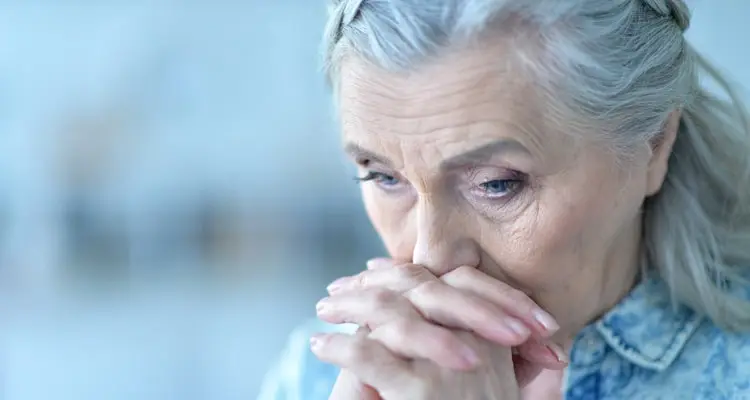
A stroke is a severe medical condition that occurs when blood flow to the brain is interrupted, often leading to significant physical and cognitive impairment. While stroke survivors may receive treatment for their physical symptoms, the mental health effects of a stroke are often overlooked. The emotional impact of a stroke can be profound, with many survivors experiencing depression, anxiety, and a sense of loss.
In this blog, we will explore the mental health effects of a stroke, including the common emotional and cognitive challenges that survivors may face, as well as strategies and resources for coping and improving quality of life. Understanding the mental health effects of a stroke is crucial for promoting better outcomes and enhancing the overall well-being of those impacted by this condition.
The Different Types of Strokes and Their Impact on Mental Health
Understanding the different types of strokes and their impact on mental health is essential for providing appropriate care and support for stroke survivors. There are two main types of strokes: ischemic and hemorrhagic.
An ischemic stroke occurs when a blood vessel in the brain is blocked, preventing blood flow to the affected area. This type of stroke is the most common, accounting for approximately 87% of all strokes. Ischemic strokes can significantly impact mental health, with survivors often experiencing depression and anxiety, as well as cognitive impairments such as memory loss and difficulty with attention and concentration. The severity and location of the stroke can also affect the mental health impact, with larger and more severe strokes typically leading to more significant cognitive and emotional challenges.
On the other hand, hemorrhagic strokes occur when a blood vessel in the brain ruptures, causing bleeding and damage to brain tissue. Hemorrhagic strokes are less common than ischemic strokes, accounting for approximately 13% of all strokes. While the physical effects of hemorrhagic strokes can be severe, the mental health impact may be less significant than with ischemic strokes. However, survivors may still experience depression, anxiety, and cognitive impairments, depending on the location and severity of the bleeding.
In addition to these two main types of strokes, there is also a type of stroke called a transient ischemic attack (TIA), or “mini-stroke.” TIAs are brief episodes of decreased blood flow to the brain, often lasting only a few minutes. While TIAs do not typically cause permanent damage, they can be a warning sign of a more severe stroke to come. Survivors of TIAs may experience anxiety and worry about their risk of future strokes, which can impact their mental health.
Understanding the different types of strokes and their impact on mental health is crucial for providing appropriate care and support for stroke survivors. By recognizing the potential emotional and cognitive challenges that may arise after a stroke, healthcare professionals and loved ones can better support stroke survivors in their recovery and rehabilitation.
The Physical, Cognitive, and Emotional Effects of a Stroke on Mental Health
A stroke can profoundly impact mental health, with survivors often experiencing a range of physical, cognitive, and emotional effects. These effects can vary depending on the severity and location of the stroke, as well as individual factors such as age, preexisting health conditions, and social support.
Physical Effects
The physical effects of a stroke can contribute to mental health challenges such as depression and anxiety. Physical impairments resulting from a stroke, such as paralysis, difficulty with speech and language, and chronic pain, can lead to a sense of loss and feelings of helplessness. This loss of independence and mobility can also impact a person’s social connections and sense of self-worth, leading to social isolation and further mental health challenges.
Cognitive Effects
Cognitive impairments resulting from a stroke can also impact a person’s mental health. Memory loss, difficulty with attention and concentration, and difficulty with problem-solving and decision-making can lead to frustration, anxiety, and depression. These cognitive challenges can also impact a person’s ability to engage in daily activities, leading to a sense of helplessness and loss of independence.
Emotional Effects
The emotional effects of a stroke can be significant, with many survivors experiencing depression, anxiety, and grief. The suddenness of a stroke, along with the physical and cognitive challenges that can result, can lead to a range of emotional responses. Survivors may feel overwhelmed, helpless, or fearful about their future. They may also experience grief and a sense of loss as they adjust to changes in their physical and cognitive abilities and changes in their relationships and roles.
Healthcare professionals and loved ones can help stroke survivors navigate the challenges and move forward with their lives by understanding the potential mental health effects of a stroke and providing appropriate care and support.
The Importance of Social Support Systems for Stroke Survivors
The importance of social support systems for stroke survivors cannot be overstated. Social support can help to alleviate the emotional and cognitive challenges that arise after a stroke, including depression, anxiety, and grief. It can also enhance recovery and rehabilitation by providing a sense of purpose, motivation, and accountability.
Social support can come in many forms, including family, friends, support groups, and healthcare professionals. Family and friends can provide emotional support, practical assistance with daily tasks, and companionship. Support groups provide a safe and supportive space to share experiences, receive advice and encouragement, and build connections with others who have experienced similar challenges. Healthcare professionals can provide medical treatment, rehabilitation services, emotional support, and advice for coping with mental health challenges.
Research has shown that social support can significantly impact mental health outcomes for stroke survivors. These studies have found that individuals with strong social support networks have lower rates of depression, anxiety, and cognitive impairment, as well as better quality of life and functional outcomes.
However, social support systems may be disrupted after a stroke, as survivors may experience changes in relationships, social roles, and activities. This can lead to social isolation, further exacerbating mental health challenges. Identifying and addressing these disruptions and providing appropriate support and resources for individuals and their families is essential.
In summary, social support systems are essential for promoting mental health and enhancing recovery and rehabilitation for stroke survivors. Social support can help individuals navigate the challenges of stroke and move forward with their lives by providing a sense of belonging, encouragement, and assistance.
Mental Health Support at Blue Moon Senior Counseling
At Blue Moon Senior Counseling, stroke survivors can receive therapy tailored to their unique needs. Our Licensed Clinical Social Workers (LCSWs) are trained to address the emotional and cognitive challenges that often arise after a stroke, including depression, anxiety, grief, and cognitive impairment.
Contact us to learn more about how our senior counseling services can assist you or your elderly family member in coping with the mental health challenges that arise after a stroke.










